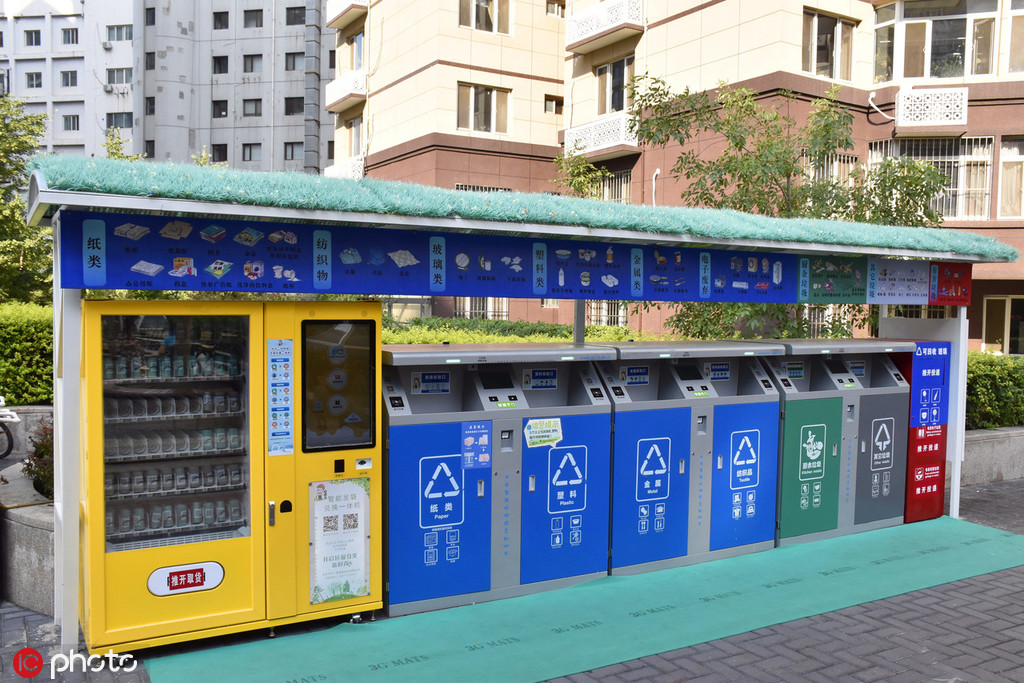Beijing to extend waste sorting policy to individuals
By DU JUAN | China Daily | Updated: 2019-07-16 08:51

Beijing's mandatory garbage sorting requirements will expand from mainly company-and institute-oriented to individuals at residential communities, municipal officials said on Monday.
Sun Lu, deputy head of Beijing's waste sorting and treatment center, said it's highly possible that Beijing will introduce detailed laws and regulations for mandatory waste sorting for individuals by the end of this year.
"The waste sorting in residential communities is essential for the back end processing," he said. "The individuals who fail to practice accordingly will be fined."
There's also a measure under discussion that people in Beijing will have to pay a waste treatment fee according to the weight of the waste they throw out, he said.
Since 2017, Beijing has required all the central, municipal and district government administrations in the city-as well as supermarkets and social institutions-to follow the garbage classification regulations, which have achieved effective results.
According to the Beijing Municipal Commission of Urban Management, the authority has checked and supervised 346,000 government administrations, institutions, supermarkets and companies since 2017. Since then, the authority has filed 13,400 cases and issued 15.15 million yuan ($2.2 million) in fines for improper garbage disposal.
The number of cases and scale of fines have been increasing in past years.
Fu Yong, deputy head of the urban management office in the Babaoshan area in Shijingshan district, said they have been checking companies and public institutes in their administrative region to follow the rules.
"Every year, companies in the region have to sign trash disposal contracts, and they should follow the classification rules accordingly. Otherwise, the sanitation departments will not collect their trash," he said.
In addition, the city government has asked each district to build at least one waste sorting demonstration residential community to conduct trash sorting within its area since 2017.
Now Beijing has 224 residential communities that are doing garbage sorting.
Wang Jian, a waste sorting supervisor at a residential community in Shijingshan district, said individuals can get points every time they dump garbage in accordance with categories including recyclables, kitchen waste, hazardous waste and other waste.
"They can use their points to redeem rewards like waste bins or bags," she said. "Once people get used to throwing waste by category, they will continue to do so even without a reward."
Li Weigang, an official with the waste classification and treatment department at Shijingshan district, said several State-owned enterprises-including Shougang Group, which used to be a major steel producer in the capital-have entered the waste treatment industry.
Companies' participation has helped authorities become familiar with garbage classification and treatment after sorting, which can assist with the plan's implementation in residential communities, he said.
























